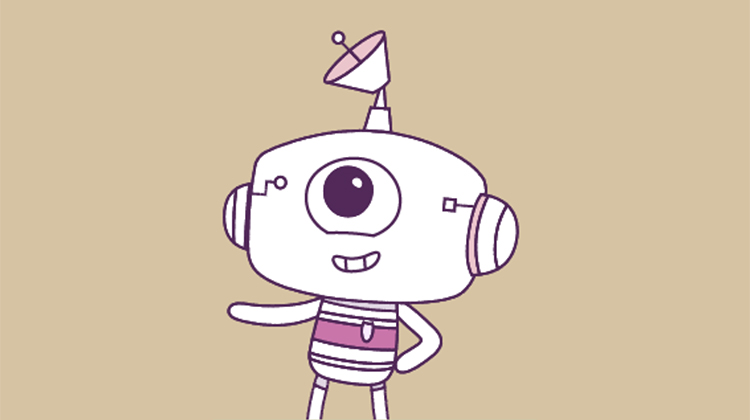Big Talks Make Big Gains in Classroom Mental Health

Used in the aftermath of the 2022 Turkish earthquakes, Big Talks for Little People continues to show itself to be a successful whole school intervention program that builds social-emotional life skills.
The globally adaptable program has been shown to improve students' emotional awareness, reduce anxiety, and decrease bullying.
Big Talks for Little People is tailored to primary schools, fostering early conversations about mental health. The program's core belief is that "you are never too young to talk about mental health."
This online resource is designed for delivery by teachers during wellbeing or care-group lessons. Ongoing research continues to uphold the effectiveness of the program, even as its programs are being updated, diversified, matched to Australian classroom settings, international contexts, Indigenous children, sports clubs, Health and Physical Education classes, and OSHC care settings.
Professors Phillip Slee and Shane Pill of Flinders University believe that the single biggest contribution that ''Big Talks for Little People makes is to empower young people to understand and act thoughtfully on their emotions and feelings.
As a year 5 student expressed in an interview; “Sometimes there are feelings that you don’t want to talk about all... but then, sometimes, you watch Big Talks animation like that and you want to talk about it a little bit, because it can be hard and emotional to say your problems out loud.”
Developed by Flinders University, in partnership with Breakthrough Mental Health Research Foundation and Little Heroes Foundation, The Big Talks for Little People Mental Health Education Program has been widely used locally in South Australia and nationally. It is listed on the South Australian Education Department’s External Wellbeing Programs Directory.
A unique element of the Big Talks for Little People Mental Health Education Program for Primary Schools is the use of animations to stimulate reflection and discussion about emotions.
The animations are comprised of characters called ‘Peeps’ and their ‘Feels’ (representing feelings).
The lessons focus on the core social-emotional learning (SEL) competencies:
· Self-awareness - e.g. Accurately assessing one’s feelings.
· Self-management - e.g. Regulating one’s emotions to handle stress.
· Social awareness - e.g. Being able to take the perspective of and empathise
with others.
· Relationship skills - e.g. Enjoying healthy and rewarding relationships.
· Responsible decision making - e.g. Considering social norms.
Wide ranging evaluations of the program have shown it to be effective in significantly improving student mental health, and wellbeing, increasing student’s capacity to recognise and express emotions and feelings, reducing anxiety and reducing bullying.
A Medibank Better Health Foundation grant recently enabled a review of the program's cultural appropriateness and an important outcome has been creating diversified versions of the Big Talks for Little People School Program. An aspect of the work funded by the grant was a scoping review of existing literature. This review found a lack of evidence-based culturally sensitive mental health education programs for primary schools internationally.
"Programs like Big Talks are needed to help primary school teachers with their curriculum and teaching work in this area of health education. The scoping review found there is a clear need to develop, deliver and evaluate curriculum based effective mental health interventions for primary school aged students," Prof Slee said.
The program is notable for its unique animations, featuring characters called ‘Peeps’ and their ‘Feels,’ which represent different emotions. These animations are central to the lessons, encouraging students to reflect on and discuss their feelings.
The program focuses on developing key social-emotional learning (SEL) competencies, including self-awareness, self-management, social awareness, relationship skills, and responsible decision-making.
“Research shows that programs delivered by professional educators in their own schools tend to be more successful than cases where external providers come in and do it,” says Prof Slee. “We designed the program around the fact that teachers have important relationships to their students, being sources of consistency, stability and support in their lives.”
Through Big Talks, teachers can become better trained for their crucial support role, starting with emotional coaching and teaching students to acknowledge and validate their emotions, as well as recognizing emotions in others. This includes guiding teachers on how to model supportive behaviours, such as offering help without taking over and supporting others during conflicts.
Big Talks connects neuroscience to teaching, so that educators can explain to students how verbal, emotional and physical pain have similar effects on the brain, as context for important discussions about belonging and inclusion.
Teachers are encouraged to use visual reminders like posters and classroom activities, including journaling and role-playing, to reinforce these concepts and provide students with practical experiences in emotional awareness and conflict resolution.
“The element of ‘lived experience’ that role-playing brings about for the students is really vital”, says Prof Slee.
Evaluations of the program have demonstrated significant improvements in student mental health and wellbeing. Students have shown an increased ability to recognize and express emotions, a reduction in anxiety, and decreased incidents of bullying. These positive outcomes underscore the program's effectiveness in creating a supportive and emotionally literate school environment.
A 2021 pilot evaluation of the classroom mental health module in Australian primary schools showed promising results. Students reported significant improvements in their emotional states, reduced anxiety, and less bullying. Teachers and students alike praised the digital format, lesson content, and professional development provided by the program.
Students involved in the pilot shared positive feedback, with one Year 4 student saying, "I just liked sitting down and talking about our feelings," and a Year 5 student noting, "It's better to talk to people than leave it inside."
The Big Talks for Little People programs are proving to be a valuable resource in primary schools, helping students better understand their mental health and fostering a supportive and emotionally aware school environment.
See Slee, Phillip T. "Big Talks for Little People Child Mental Health Module" in School-Based Family Counselling for Crisis and Disaster ed. Brian A. Gerrard, Emily J. Hernandez and Sibnath Deb. (New York: Routledge, 2023) eBook ISBN: 9781003201977